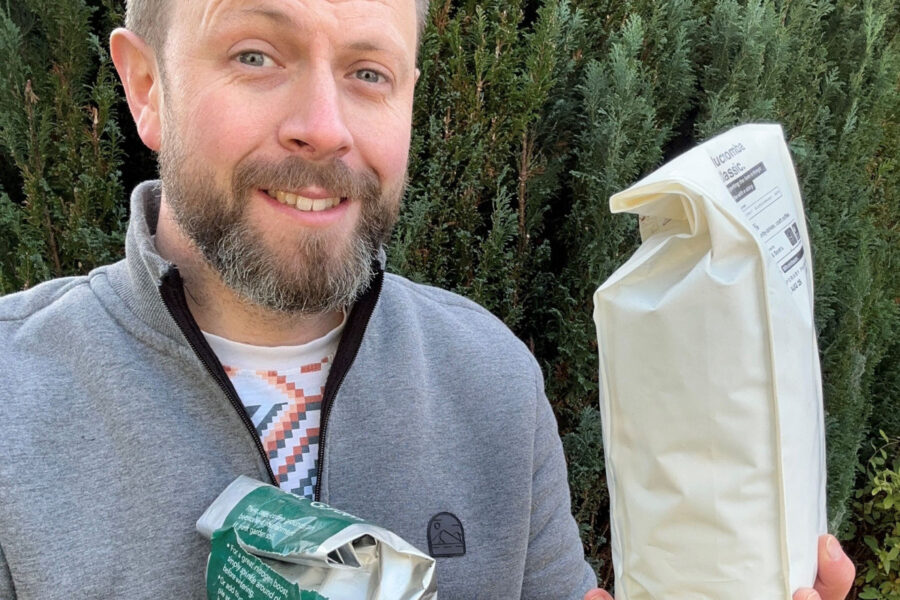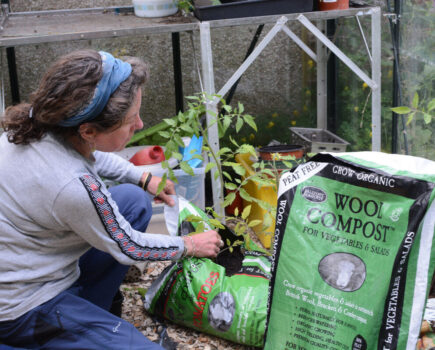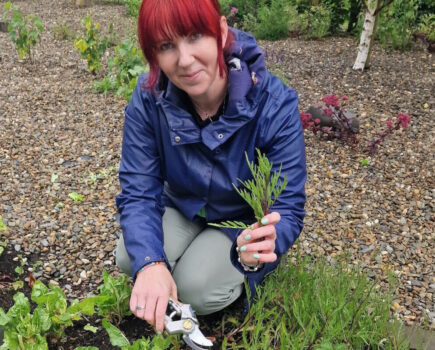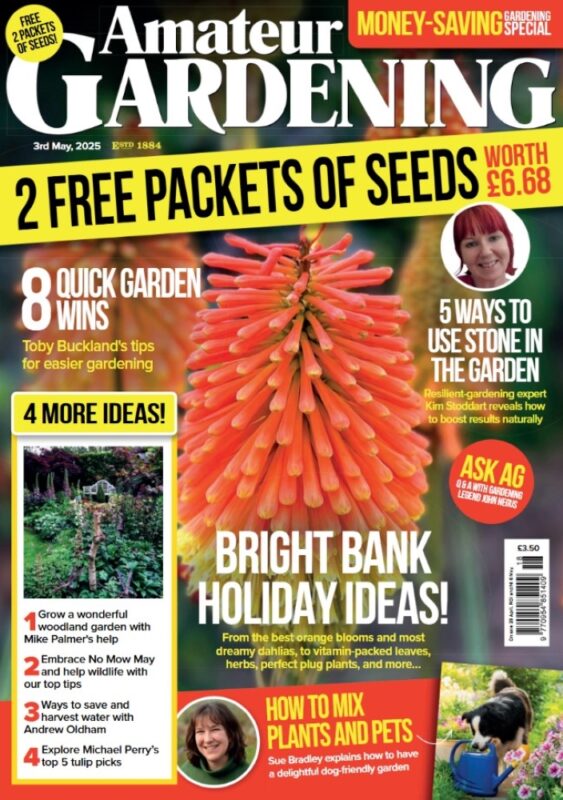Adam reveals how your daily brew can feed plants and help deter pests
It’s long been known that there are many things that come from other products, and these are known as byproducts. Coffee grounds are a great example, as cafes and coffee shops all over the UK grind tonnes of coffee beans every day, but don’t usually have a use for them after this time.
However, in recent years, some coffee outlets have started bagging up their used grounds and leaving them on the counter so customers can take them away, free of charge, to use as they wish. I’ve been using coffee grounds in my garden for the past few years and I’m delighted to share some of the helpful ways that you can try it too.
………
Bagged coffee grounds won’t store well for long periods of time, so use them straight away or certainly within a week of getting them home.
………
Add them to your compost bin
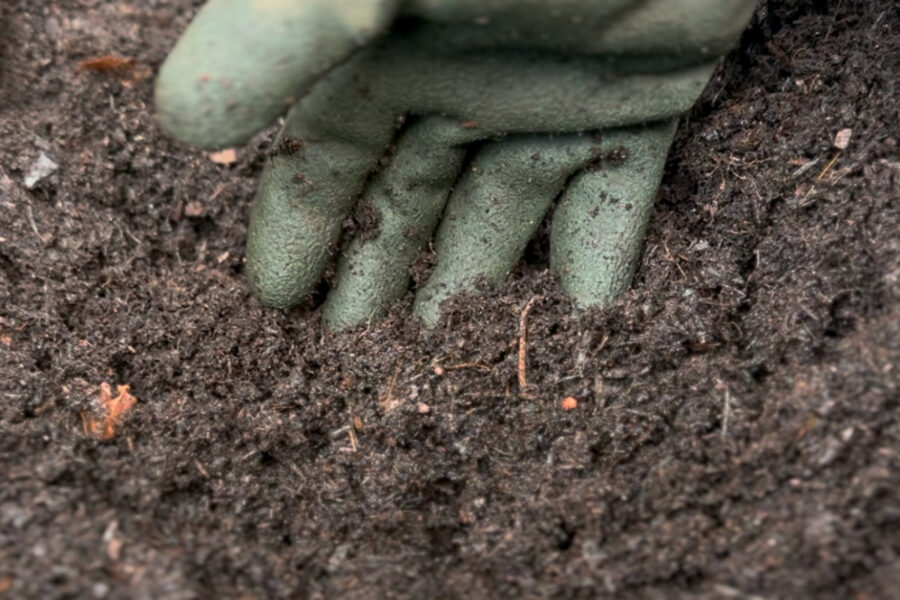
Coffee grounds are a perfect material to add to your compost heap but do make sure you do so in moderation. Good composting is all about using a mixture of green and brown materials to give it the best chance of doing well.
Spread the grounds thinly and mix them in so they don’t get compacted and start to smell bad.
Additionally, coffee grounds attract beneficial microorganisms and worms, which enhances the quality of the compost.
Avoid adding too many at once, as excessive nitrogen can upset the balance of the compost. If you make your own filter coffee and have biodegradable filters, then you can safely add these to your composting system too.
Use them as a mulch for beds and pots
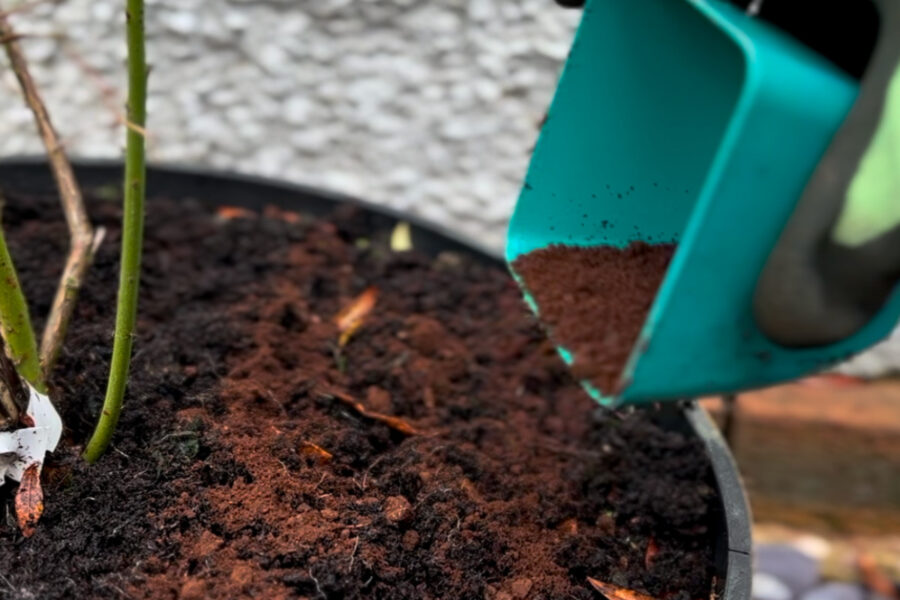
Used coffee grounds make an effective, eco-friendly mulch for the garden, breaking down slowly, adding organic matter and nutrients like nitrogen to the soil.
However, they can form a crust when applied thickly, limiting water and air flow, so mix them with other organic mulches like shredded leaves or straw. Avoid placing them directly against plant stems to prevent rot too and do give them a little mix in too to help kick start the process.
Used grounds may slightly acidify the soil, which will benefit acid-loving plants like azaleas or blueberries. Their gritty texture also makes them a natural deterrent for slugs and snails.
Make your own liquid coffee fertiliser
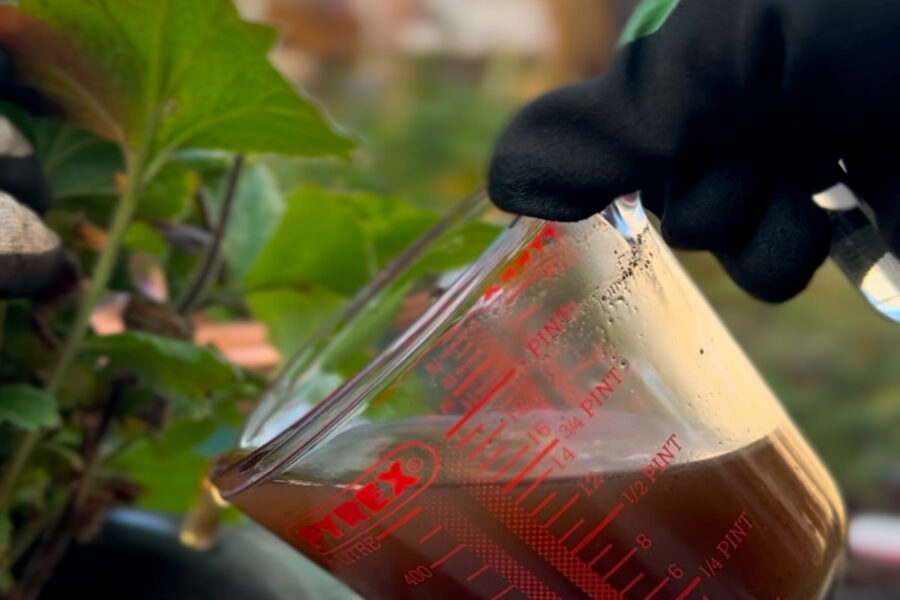
To make it, steep a cup of used grounds in warm water for 24-48 hours, creating a mild ‘coffee tea’. This solution provides plants with trace minerals like magnesium, potassium, and nitrogen, promoting healthy growth.
Strain the mixture before use to prevent clogging spray bottles or watering cans and then apply it to the base of plants as a soil drench. This method is particularly useful for container gardens or during periods of rapid plant growth. Again work with acid loving plants.
……………….
Proudly sponsored by Durston Garden Products
Durston Garden Products is fully committed to a peat-free future, with its new growing media collection embodying this mission. From its family-run Glastonbury headquarters, the team use its exclusive ‘Gro Fibre’ and ‘Gro Boost’, plus 14 vital nutrients, to create a range that delivers bigger plants with continued feed for up to six months. From beds to baskets and everything in between, you can trust in Durstons.
Find more tips, advice and articles like this at the Amateur Gardening website. Subscribe to Amateur Gardening magazine now

